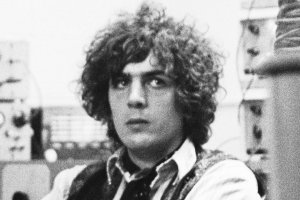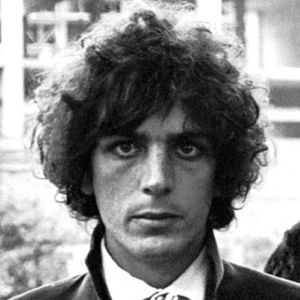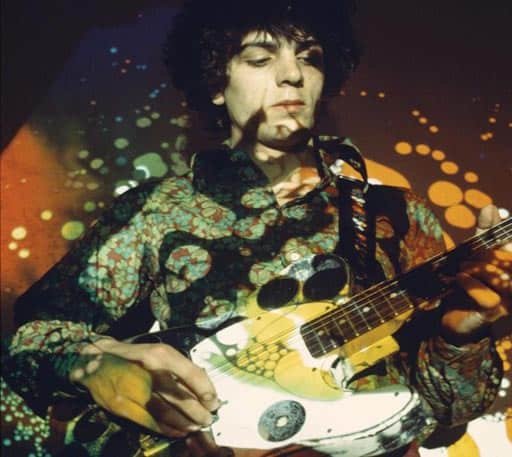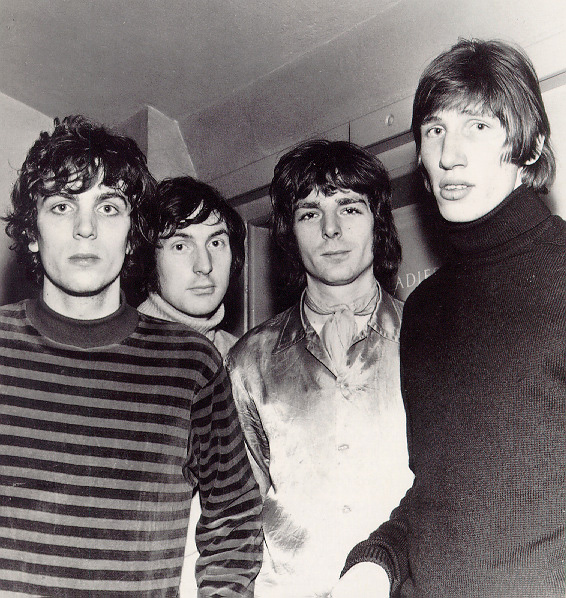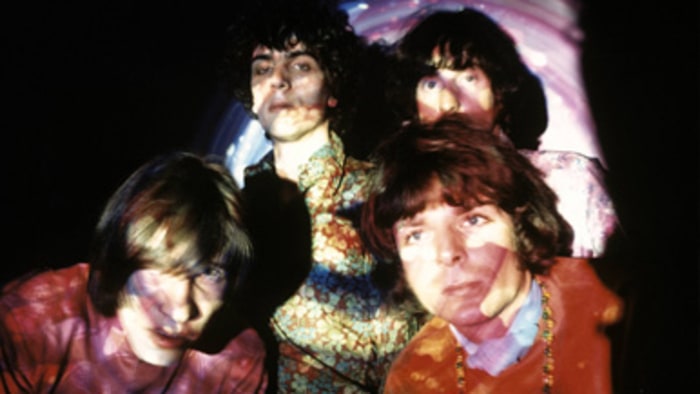Syd Barret. A genius who came back to continue creating
During the second decade of the 60s, while Pink Floyd's career was going uphill, the mental state of Syd Barrett was traveling in the opposite direction. Between his mental disorder and his addiction to LSD, Syd was no longer the promising musician he had been and the group needed a guitarist who was present in body and soul. That's when David Gilmour comes on the scene. Gilmour explained the reason for joining Pink Floyd: "The idea was for me to play the guitar and sing on the records while Syd was at ease. Another plan was for Syd to stay at home and write songs without allowing her to go on stage so she would not ruin the concert every night. The story changed every five minutes. At that time the group was dying slowly. " At first, the idea was that the figure of Barrett was in the shade, something similar to what happened with Brian Wilson and the Beach Boys.
And that's because Syd Barrett did not give more than himself. "It's not that it was impossible to play with Syd, it was totally impossible. It was a purely practical decision. There was no other option. If he had stayed, Pink Floyd would have suffered a shameful death, "Gilmour said. One day, before a concert in Southampton, his classmates decided not to pick up Syd. Nick Mason, drummer of the group, recalls this fact harshly in his autobiography "Inside Pink Floyd" (Robinbook): "In the car, on the way to go to look for Syd, someone said, 'Pick up Syd?' And the answer was 'No, fuck, it's not worth it'. Telling it in such a direct way sounds like we do not have a heart and we are really cruel: it's true. The decision was completely cruel, just like us. We acted with narrow-mindedness, although I thought that Syd behaved simply with bad intentions and I felt so exasperated with him, that I could only see the impact he was having in the short term in our desire to be a successful band. " Bassist Roger Waters was more forthcoming when talking about Syd Barrett's role in Pink Floyd: "It could not have happened without him, but on the other hand, we could not have moved on with him." Although Gilmour considers that this decision to remove him from the group perhaps did not matter much to the interested party: "I do not even think that Syd knew what had happened. I was really gone at that time. "
Thus, on April 6, 1968, it was reported that Barrett had "left" the group. The legacy of Syd Barrett as a member of Pink Floyd was scarce and he only participated in the first two albums of the group, "The Piper at the Gates of Dawn" (1967) and "A Saucerful of Secrets" (1968), belonging to the stage psychedelic however, we must not forget that without Barrett, Pink Floyd would not have existed. For its part, the group showed that it knew how to manage without its lunatic former leader and under the command of Roger Waters. Syd released two solo albums in 1970, "The madcap laughs", produced by Waters and Gilmour, and "Barrett", produced by Gilmour and keyboardist Richard Wright. Soon after, he retired as a hermit at his mother's house in Cambridge and did not see his companions and friends again. Or if?
Legend has it that, years after leaving the group, Syd Barrett suddenly appeared at the Abbey Road studios, guitar in hand, to record their parts but that his appearance was so different that neither his former classmates were able to recognize him. This fact is a half truth.
The members of Pink Floyd would remember June 5, 1975 not only because it was the day that Dave Gilmour got married, but also because of an unexpected visit that appeared in the studio. At that time, the group was working on the mix of 'Shine on you crazy diamond', the main piece of the LP "Wish you were here", an album that talks about madness and business, if they are not the same thing . This song, formed by nine parts and that opened and closed the elepé, arose from a "riff" that Gilmour came up with as an "accident" and was inspired by the ill-fated Syd. Barrett was no longer part of the group, but 'Wish you were here' and 'Shine on you crazy diamond' showed that he was still present among the musicians, even if it was not physical or in person. Roger Waters tried to explain where that inspiration came from: "I do not know why I started writing that letter about Syd. I think it was because Dave's riff had an extremely lugubrious sound, that was a long time before the recording sessions of "Wish you were here", when the state of Syd could be seen symbolically as the general state of the music. group, that is, very fragmented. The previous album, "The dark side of the moon" (1973), was such an ambitious project that it had left the band exhausted, hence the group felt "fragmented". According to Waters, what he wanted to convey with 'Shine on you crazy diamond' was the following: "I wanted him to reflect with the greatest accuracy what I felt (...), that kind of melancholy
While Barrett's fuzzy figure fluttered in the air during the recording, as if Pink Floyd was invoking him, a stranger dressed in white, fat, with shaved head and eyebrows and a bag in hand, appeared on Abbey Road. Everyone was taken aback by his presence. That "great guy, fat, bald and lunatic," as defined by Roger Waters, was Syd. At least, what was left of him. The first to be aware of the identity of the strange character was Gilmour: "That guy was walking around, looking at the equipment, and at first I did not notice him because he thought he was one of the brains of EMI personnel. Then he entered the control room. He was there for a long time and we all whispered: 'Who the fuck is this guy?' I was the first to recognize him. " At first, Richard Wright was not so clear about who the stranger was: "He appeared in the studio and nobody knew who that person was. I remember that when I entered, Roger was already there, working. I sat next to him. Ten minutes later, Roger told me: 'Do you know who that guy is?' I replied: 'I have no idea. I assumed he was a friend of yours. ' He said: 'Think, think'. And I kept looking at him, until suddenly I realized it was Syd! " Roger Waters cried when he saw the condition of his friend and Nick Mason was "horrified by the physical change," as he recounts in his autobiography: "Now he did not seem like a man who had any friends at all. Their conversation was intermittent and not fully understood, although, to be fair, I do not think any of us were especially eloquent. I have no idea why he was there. No one had invited him, and I had not seen him since he left the group in 1968. "
here an image of syd barret at that moment
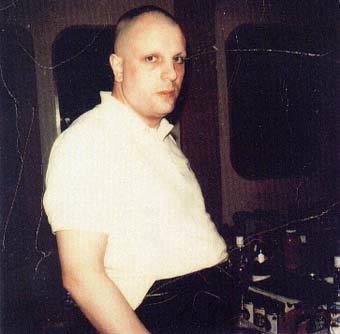
What was Syd doing in the studio? Nobody had the answer. The drummer compared the unexpected visit with the classic character of J. M. Barrie: "It is very easy to draw parallels between that Syd and a Peter Pan who returns to see that the house is still there, although people have changed. Perhaps he expected to find us as we had been seven years before, ready to work with him again? " Barrett updated his companions about his life: "Well, I have a color TV ... and a refrigerator. I have some pork chops in the fridge, but the chops are gone, so I have to keep buying more. " He also heard the reproduction of "Shine on you crazy diamond" without being aware that he was that crazy diamond and described it as "a little weird". Later she did not understand that the musicians would listen to her again: "What for? You've heard it all. " The former member of Pink Floyd showed himself as coherent as could be expected from him and was lost and absorbed during his visit. Maybe he did not even know what he was doing there. Despite this, he surprisingly asked when he could record his part with the guitar. His companions replied that he had already recorded it.
Syd Barrett got lost in the crowd at the EMI bar during the Gilmour wedding party. The attendees confused him with a Hare Krishna. Then he left without saying goodbye. The four musicians did not see him again.
Dave Gilmour took the issue out of the appearance of Syd while ironing 'Shine on you crazy diamond': "It's another one of those stupid stories. The idea that Syd was a spooky specter is bullshit. " For his part, Mason emphasizes in his book that the visit made the musicians make a self-assessment: "His sudden and unexpected arrival made us remember a whole stage of the group's life. One of those feelings that surfaced was guilt. We all had something to do with Syd's current state, either because he did not want to acknowledge his situation, because of lack of responsibility, insensitivity or blatant selfishness. " The reunion with Barrett confirmed why Pink Floyd had decided to choose to continue his journey without him, but at the same time it served as a catalyst for the group. "Wish you were here" was an emotional tribute to Syd. Just when the album is ending, at the end of "Shine on you crazy diamond", you can hear some notes from 'See Emily Play' to remember that there was a time when the Barrett diamond shone brighter than the others.
The story of Syd Barrett may seem like the typical story of the rise and fall of a rock star, but Syd, unlike other musicians contemporaneous with him, did not fulfill the motto of "live fast, die young and leave a beautiful corpse". Finally, in 2006, at sixty, that crazy diamond stopped shining
images of syd barret and pink floyd
